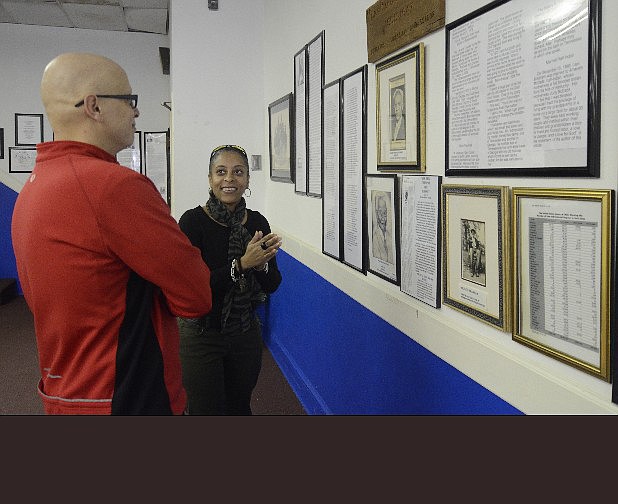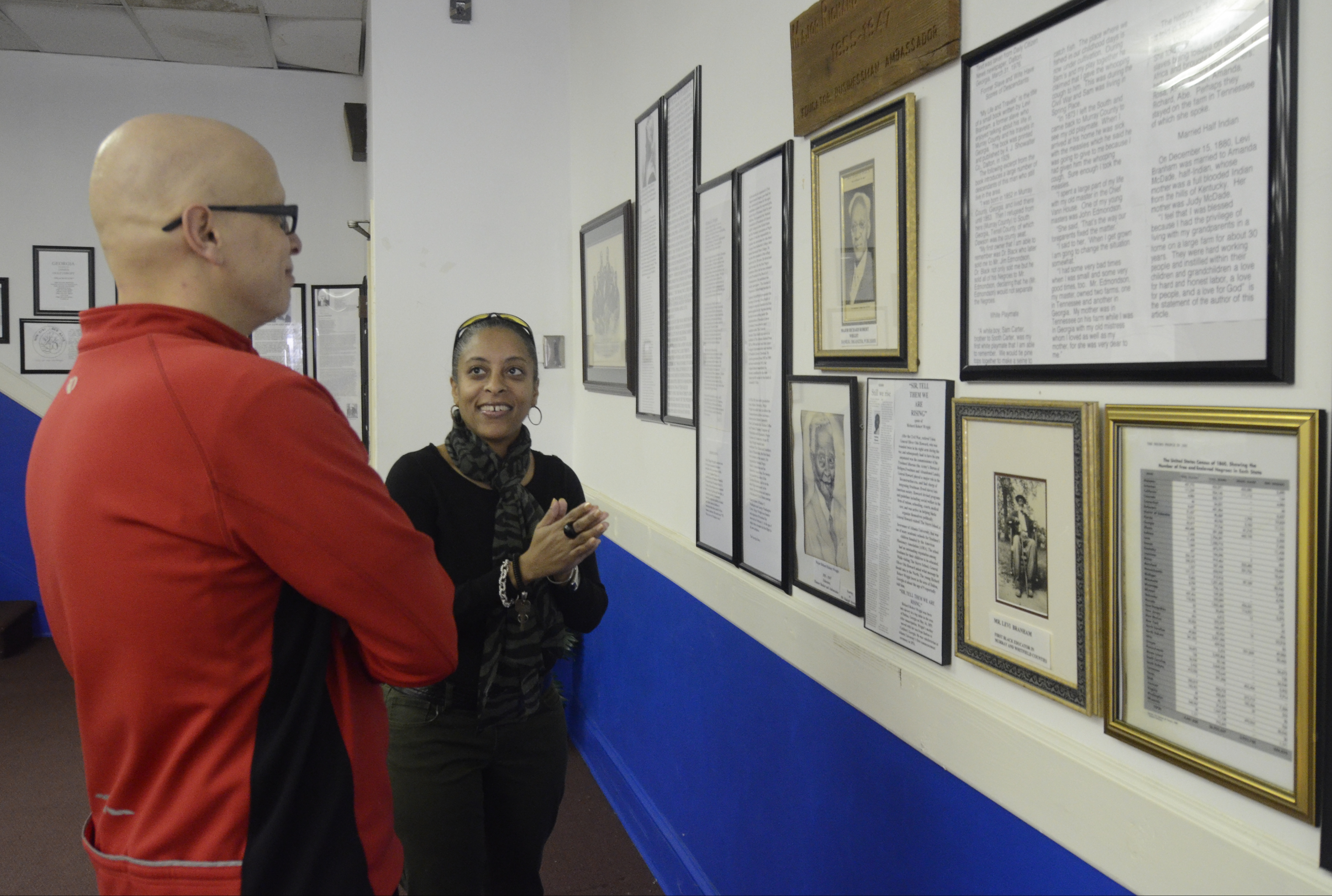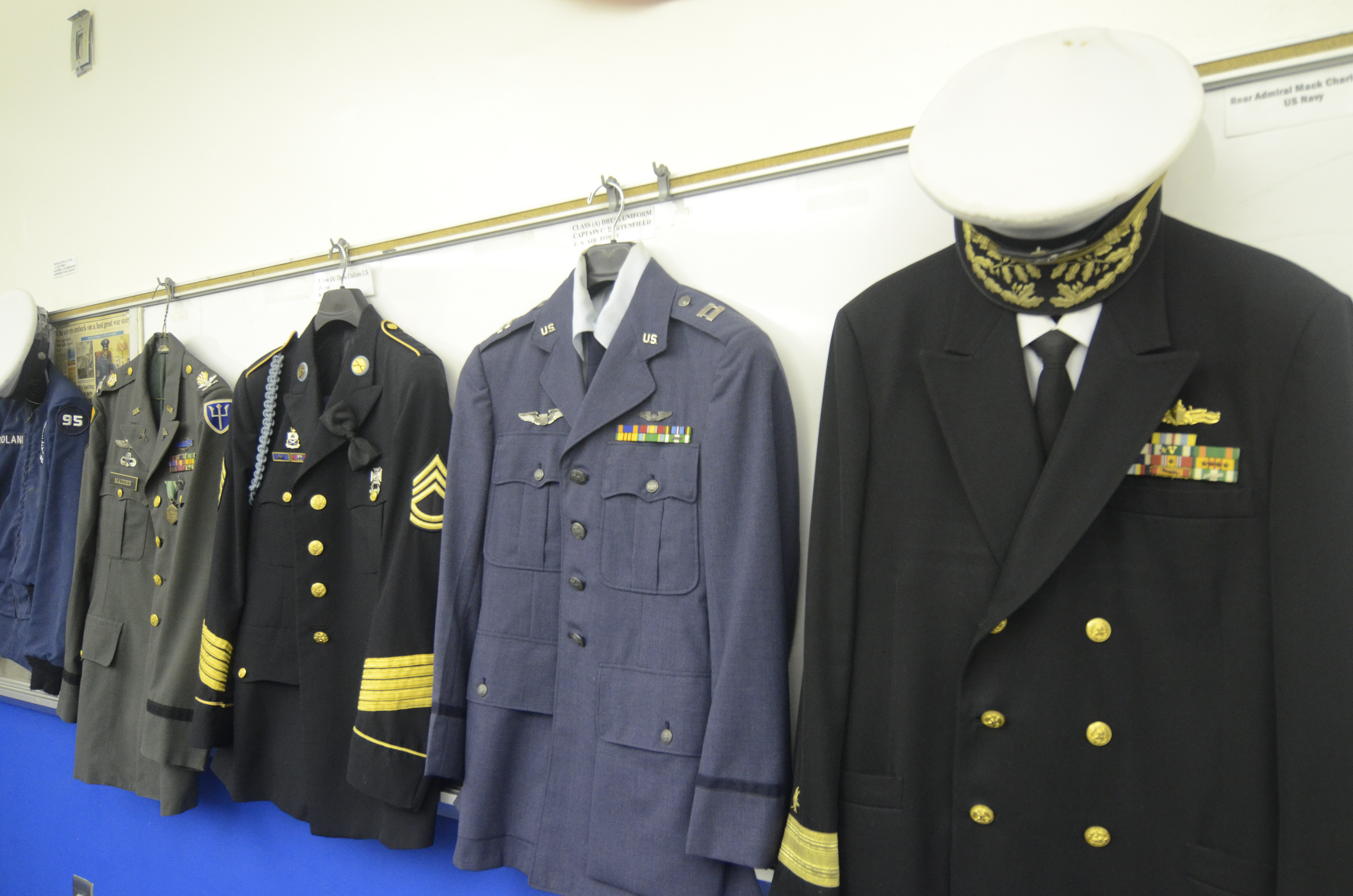An African-American cultural center that is home to more than a century of Dalton history faces closure, but a host of volunteer board members and staff are doing all they can to keep it open.
The Emery Center needs $90,000 by the end of the year to pay for city-mandated building improvements, including a new heating and air-conditioning system and a new roof. Without the repairs, city inspectors have said they may close the building.
An anonymous donor has agreed to match up to $40,000 in contributions to the museum, said facility director Curtis Rivers. And the museum has created a business plan and is working to develop a relationship with the Smithsonian.
But right now the center needs two things -- time and outside financial help.
Rivers hopes the former could come this week, when he meets with Dalton City Administrator Ty Ross to ask for an extension. Rivers believes that the city will extend its end-of-the-year deadline after it sees the effort museum supporters are making toward improvement.
Even with more time, the center is going to need outside financial help to meet its goal, said Rivers. Fairground Missionary Baptist Church gave $1,000 toward repairs and contributes $50 a month for general maintenance. If all churches contributed $50 or $25 a month, the center would have enough to make repairs, said Rivers.
The center has applied for grants but doesn't have the matching funds needed to qualify for large grants. The center receives no city funding, said Rivers.
Ross said the city wants to help, but it doesn't want to save the museum single-handedly.
The cultural center is not a department of the city. It's a separate entity, Ross said.
"We partially fund the library. We partially fund the creative arts guild. We partially fund a whole host of cultural-type services, and we just want to make sure that they're (the Emery Center) doing their fair share," said Ross.
Ross said the city is supporting the museum by writing the letter mandating repairs and giving museum supporters a deadline to make repairing the museum a priority. The city also created a letter soliciting funds and brochures for the Emery Center to help supporters market the facility to potential donors and tourists.
"We want to work with them and be good partners, but the foundation can't solely be funded by the city," said Ross.
Ross said the city is willing to have further discussion if the cultural center can show it has made progress toward generating money for repairs.
From 1886 until 1968, what is today the Emery Center was the only school in Dalton that blacks could attend. The original building was destroyed by fire in 1909 but was rebuilt in 1924.
The school was integrated into the Dalton School System in 1968 and later became Emery Street School and then City Park Middle School. The city was planning to demolish the building in 1999 until Rivers and other supporters asked that the building be preserved.
The Emery Center was reborn as an African-American cultural center in 2001. Since then it has been the destination of nationally known guests such as civil rights leader and U.S. Rep. John Lewis and Nettie Washington Douglass, a descendant of Frederick Douglass.
The Emery Center includes three floors of historical contributions of local blacks and people from across the nation. The museum also includes the historical contributions of some whites and people of other cultures. Museum officials are planning a room dedicated to the historical contributions of Hispanics and another to American Indians.
"Our mission is to promote an awareness of African-American culture and heritage while fostering an atmosphere of trust, integrity and respect for all cultures," said Reynolds.
A tour of the museum includes four main rooms with each room having a different theme. One is from Africa to Slavery, another is from Slavery to the Civil War, from the Civil War to Civil Rights and finally the last room is called the I Have A Dream Room. The tour is called In Freedom's Footsteps.
The museum is a stop for some school tours, but most visits are sporadic because the center doesn't keep regular business hours.
After receiving the letter from the city, Rivers and other supporters created a business plan for the upcoming year that includes a salary for a full-time museum operator.
The cultural center has operated for more than a decade with an all-volunteer staff and board. It generated enough money in donations and membership fees to maintain the $12,000 to $14,000 a year it spent on maintenance and utilities.
But when a leaking heating and cooling unit started dripping water onto the center's auditorium stage, center officials asked the city for financial assistance to perform repairs. Instead the city sent out its building inspector, who documented the leaking heating and cooling unit, along with a leaky roof and gutter work that needed to be done.
Museum supporters received a letter from the city code inspector in August stipulating a deadline of Dec. 31 to gain the money for repairs.
The biggest expense is the $60,000 heating and air unit. An additional $20,000 is needed for a new roof. The remaining money will go toward gutter repairs.
Board member Dionna Reynolds said the center should be saved so future generations can see their history.
History makes a person more grounded in his identity and elevates his demeanor, said Rivers.
"You should always know what has been behind you to understand what's ahead."
Contact staff writer Yolanda Putman at yputman@timesfreepress.com or 423-757-6431.


